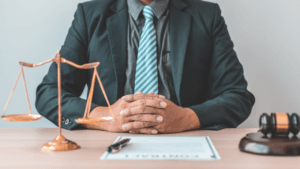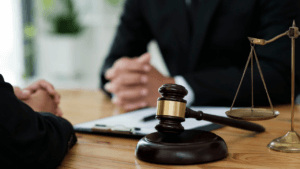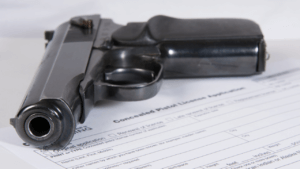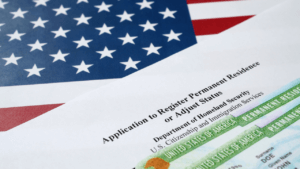
Why Choose Rosenblum Law

Over 25 Years of Combined Experience
Proven Track Record
Our Client Testimonials
Our Process For Criminal Cases
Contact our firm
Speak to an experienced attorney to understand your legal options, possible resolutions, and cost of representation.
Step-1We build your case
You will be partnered with a full-time case manager and dedicated attorney. We will form a strategy to tackle your case in the best possible way.
Step-2You attend court with counsel
Your experienced attorney will attend all court appearances with you and advocate on your behalf.
Step-3We settle your case
Defense counsel will meet with the Prosecution in an attempt to reduce the original charge(s) or dismiss the matter. If an agreement cannot be met, your attorney will represent you at trial.
Step-4Move on!
After having your case completed, you can put this experience behind you and move on with your life having peace of mind.
Step-5Frequently Asked Questions
What’s the Difference Between Private Lawyers vs. Public Defenders
Those charged with a criminal offense in the U.S. have the option to request a public defender, rather than hire a private attorney to argue their case. The New Jersey Office of the Public Defender can have some skilled lawyers, but there are many reasons why a person should strongly consider hiring a private attorney:
- Lack of choice. One cannot choose which lawyer from the public defender’s office one gets. By contrast, a person can select from many private firms, finding an attorney who seems both aggressive and trustworthy.
- Experience. Many criminal defense attorneys begin their careers as public defenders. As such, there is a good chance that a public defender will have less experience than those working for private firms.
- Time. Public defenders often have significantly higher caseloads than private attorneys. This limits the amount of time they can dedicate to each client. Private attorneys can pick and choose which cases they want to take on, giving each case as much time as it needs.
No free defense. In New Jersey, those who hire a public defender are often still charged a fee for the service.
What Happens During and After an Arrest?
The law defines an arrest as the point when someone is in police custody and no longer free to leave. Usually, this involves the police handcuffing a suspect and driving him/her to a precinct to be booked. Anyone who is being arrested should not struggle, run, or fight the police because this can result in criminal charges for resisting arrest.
The best course of action is to avoid answering questions and contact a lawyer to deal with any charges. Anyone arrested for a crime has a right to remain silent. The police cannot require someone to answer questions without a lawyer present.
Although most people feel the need to tell the police their side of the story, this is a bad idea. Any statements a person makes to the police can be used against him/her in court, but a refusal to answer questions cannot be.
Once a person has been arrested, he/she will be booked at the police precinct. The police fingerprint the person and take a mugshot. For some minor offenses, a person might be sent home with an order to appear in court at a certain time. In other cases, the person can be held in jail for up to 48 hours before his/her first appearance in court.
During this time, the person will have a chance to make a phone call. He or she should use this phone call to contact a lawyer or have family contact a lawyer.
The next step is the first appearance. At a first appearance, the person is brought before a judge and notified of the accusations against him/her. The first appearance is where the judge decides whether the accused will be released or remain in jail before trial.
New Jersey has done away with cash bail in most cases. Whether a person is released at this stage depends on how likely the judge thinks the person is to commit more offenses or flee if released. For that reason, it’s a good idea to have an attorney present to argue for bail on behalf of the accused; it can mean the difference between spending months in jail or being free until trial.
How Do Prosecutors Decide Whether To Press Charges?
After the first appearance, the prosecutor decides whether to press charges. This involves investigating the incident that led to the arrest and determining whether the accused likely committed a crime. Depending on the amount of evidence the prosecutor has, he or she might drop, downgrade, or negotiate the charges with the accused’s attorney.
An accused’s statements to police are some of the strongest evidence a prosecutor can have, which is why it’s critical for anyone who has been arrested to use their right to remain silent.
At this stage, a defense attorney may be able to negotiate a deal with the prosecutor. A deal might involve the accused agreeing to enter a substance abuse program or diversionary program in exchange for having any charges dropped. In other cases, the accused will be allowed to plead guilty to lesser offenses and receive a reduced sentence.
If there is no deal, the prosecutor will file an indictment against the accused. The indictment lists the specific charges the accused will face. Once indicted, the accused person is entitled to an arraignment before a judge.
What Happens Once Charges Are Filed?
Before the arraignment, the accused and the accused’s lawyer will receive any evidence the prosecutor has. At the arraignment, the accused will plead either guilty or not guilty. A good criminal defense attorney will be able to evaluate the evidence and determine whether the accused should make a plea deal or go to trial.
If the accused pleads not guilty, the prosecution and defense will conduct investigations and build their cases. New Jersey guarantees the right to a speedy trial, but in some cases it may be better for the accused to waive that right to get more time to build a case. The accused also gets to decide whether the trial will be in front of a jury or a judge. A good defense lawyer will know whether an accused should waive the right to a speedy trial and/or a jury.
Evidence can be thrown out in the pre-trial stage if the police or prosecutor violated the accused’s constitutional rights during or after the initial arrest. Examples of constitutional violations include illegal searches or interrogating the accused without notifying him/her of the right to remain silent. Sometimes, the loss of this evidence can sink the prosecutor’s entire case. Constitutional arguments like this can be very technical, but experienced lawyers know how to make them.
What Happens At A Trial?
At trial, the prosecutor has to prove that the accused is guilty beyond a reasonable doubt. This is done by examining witnesses and presenting physical evidence. It’s vital to have a good defense attorney at trial. The defense attorney can cross-examine the prosecutor’s witnesses for inconsistencies in their stories and present their own evidence to make the judge or jury doubt the prosecutor’s case. The accused does not have to testify at his/her own trial. A defense attorney can tell whether it’s a good idea for the accused to testify.
The judge or jury, depending on the trial, will return a verdict of guilty or not guilty. If the accused is found guilty, there will be a separate hearing to determine the sentence. At a sentencing hearing, the prosecutor and the defense lawyer will present arguments to a judge. Once again, it’s critical to have a good defense attorney at this stage. The judge usually has a good amount of discretion to decide the sentence, and a good lawyer can make persuasive arguments to reduce the sentence as much as possible.
If the judge made a mistake during a trial and the accused was convicted, it’s possible to appeal the verdict. Common mistakes include incorrectly admitting or excluding evidence or improperly instructing the jury about the law. However, the appeals court will only hear appeals if the accused objected to the mistake during the trial. A good defense lawyer will be able to spot trial mistakes instantly and object to them, preserving any possible appeals.
What To Do If You Have Been Arrested?
A person arrested should remember certain key advice in order to maximize the chances of having charges dropped, reduced, or being acquitted.
Exercise the right to remain silent. This is the most commonly issued and most important advice for those who have been arrested. Being silent is not enough; someone who has been arrested should specifically request an attorney or tell the police that he/she is exercising the right to remain silent. The Supreme Court has held that the police must stop asking questions once a suspect has invoked the right to remain silent or asked for an attorney. Do not answer any questions, sign any papers, or offer any information of any kind.
Be cooperative. Beyond speaking or signing papers, a person should comply with reasonable requests by police, including being restrained, moving to different rooms, taking mugshots, etc.
Call an attorney. Once a person has been processed, he/she is usually permitted to make a phone call. If one does not wish to use a public defender, then this call should be used to contact a criminal defense attorney.
How to Hire a Good Criminal Lawyer?
Selecting an attorney may seem like a daunting task, but it doesn’t have to be. There are several key things a person should look for in order to ensure that one’s attorney is a good fit. These include:
- Experience with the kind of charges. Many attorneys specialize in different offenses, such as violent crimes, domestic violence, theft-related charges, etc. Ask what the lawyer has defended before and if the charges in question are something he/she is familiar with.
- Pricing structure. While it may be tempting to look for a low-cost attorney, it is better to seek an attorney with a reasonable pricing structure that allows for low monthly payments. This ensures one can get quality legal counsel without going broke.
- Handling of the case. It is important to know who and how many people will be working a case. More is not always merrier when it comes to criminal defense; a smaller law firm may be able to devote more personal attention to your case than a larger one.
How to Expunging a Criminal Record?
criminal record can cast a shadow over the rest of one’s life. The digital age makes digging up arrests and convictions easy for employers, landlords, schools, and more. This is true even if it has been years and one has not been accused of a crime since.
Thankfully, some people can clear their criminal record. New Jersey calls this process “expungement.” Essentially, a person can have part or all of his/her criminal record isolated so that only a small handful of government organizations can see it.
The basic requirements for an expungement are that a person have completed the terms of his/her sentence and have not been charged with other offenses for 5 or 6 years. There is also a limit on how many offenses a person can have on his/her record and the kind of offenses that are eligible.
Receiving an expungement can open all new doors to one’s life both personally and professionally. However, the process can be difficult to navigate without help. For this reason, it is wise to seek help with the process from an experienced expungement attorney.
If I cannot afford to post bail in New Jersey, what are my options?
A bail bond can replace a cash payment when a defendant is given the option to post bail. The bond requires the bail or agent to provide the court with a document that states if the defendant does not come to court, the insurance company that posted the bond will pay the full bail on behalf of the defendant.
The bail agent will generally charge the defendant around 10% of the value of the bond. The defendant may also be required to give a bail agent collateral (something of value such as property).
What is a plea agreement, and what are the benefits of it rather than going to trial?
A plea agreement is made between the defendant, the prosecutor, and the judge. The defendant will plead guilty in exchange for a reduced charge or sentence, and the prosecutor is able to avoid a lengthy trial. A plea agreement is possible even if the case goes to trial.
During plea negotiations, the defendant’s attorney argues for lesser consequences for the defendant than what they might face if convicted at trial. A plea agreement may also be beneficial to avoid the publicity of the trial. A defendant will usually, but not always have to plead guilty to the lower offense that’s being offered and be sentenced on that lower charge.
How can a criminal conviction impact my ability to vote in New Jersey?
In New Jersey, someone convicted of a felony who is currently in prison relinquishes their right to vote. However, they will be eligible to vote if they have been released from prison and are on parole or probation.
What resources are available for recently released defendants in New Jersey?
New Jersey has many organizations working to help people who are leaving the criminal justice system reenter society.
For example, the Reentry Coalition of New Jersey works with recently released people from jail to establish them as a free New Jersey resident. The program gives the incarcerated a second chance at a healthy, successful life.
Similarly, the New Jersey Reentry Corporation is a non-profit agency whose mission is to remove barriers to recently released individuals from jail. Their resources include job training, employment, substance abuse treatment, and mentoring services.
How can I apply for expungement in New Jersey?
A New Jersey resident can apply for expungement online using the New Jersey eCourt Expungement System. An applicant will be directed to create an eCourts account through the New Jersey Courts website, where they can enter their case number to begin the application. The best option is to hire an attorney to handle the expungement to avoid bumps along the way which could lead to a denial.
More Resources



New Jersey Criminal Defense Lawyer
After an arrest, defendants often find themselves overwhelmed with the complexities of criminal defense law. Every New Jersey resident should understand their legal options, their rights under the law, as well as their constitutionally protected rights. It’s especially important to understand your rights if you are arrested.
In this article, we discuss what you need to know after being arrested, the bail process, types of criminal offenses and criminal process, your rights during a criminal trial, and other key aspects of New Jersey criminal defense law. Note that certain elements of this article apply only to state crimes, not to federal crimes.
What You Need to Know After Being Arrested
If a person is arrested in New Jersey, they will be brought to an initial processing in a police precinct. They will be read their Miranda rights by the police, and they will be given the opportunity to make a phone call. An arrested person must request to make a phone call and contact an attorney, or call a family member to contact an attorney.
The police will ask for the individual’s personal information, or “pedigree”, including their name, address, and date of birth. They must provide this information to avoid a delay in processing their arraignment.
The individual should not sign any documents, answer any questions, or make any statements relating to their alleged crime. A police officer may try to convince or intimidate them into giving a statement, but it is vital to refrain from answering. Otherwise, the information may be used against them in court. The police are required to terminate further questioning when an arrested person states their wish to speak with an attorney.
In the initial processing, the individual’s fingerprints and mugshot will be taken. They will then be brought to central booking, and their arraignment will be processed.
Bail
Bail is the payment of cash or bond (a bail insurance policy) for the release of the defendant. It helps ensure the arrested person will attend their scheduled court hearing.
In New Jersey, a judge will consider the dangerousness of a defendant to their community when deciding their conditions for release. If a defendant is deemed to be dangerous or a flight risk, they will await their trial in jail and will not receive the option of bail.
Bail is evaluated on a case-by-case basis through New Jersey’s risk-assessment tool, which considers certain factors such as:
- the defendant’s age
- the type of offense, and
- their criminal history
This system does not consider a defendant’s ability to pay bail.
Once a defendant posts bail or is held in jail without bail, their court date will be assigned. They will also be detained in jail if they are unable to post bail.
For nonviolent felonies (known in New Jersey as “indictable offenses” or “degree crimes”) and misdemeanors (known as “disorderly persons” offenses), a judge can release the defendant without bail but they will still technically be under the supervision of the department of probation. The judge may also require an electronic monitor and/or periodic check-ins with the department of probation.
Types of Criminal Offenses and Criminal Process
Criminal offenses in New Jersey fall into three general categories: petty disorderly persons offenses, disorderly persons offenses, and indictable offenses. Indictable offenses are most similar to felonies in other states.
Petty Disorderly Persons Offenses
Petty disorderly persons offenses are punishable by up to 30 days in jail and a $500 fine. Examples include:
- Disorderly conduct
- Harassment
- Trespass
Disorderly Persons Offenses
Disorderly persons offenses are punishable by up to six months in jail and a $1,000 fine. Examples include:
- simple assault
- shoplifting involving less than $200
- resisting arrest
Indictable Offenses in New Jersey
Indictable offenses in New Jersey include more serious crimes like:
- Murder
- Aggravated Assault
- Rape
- Armed Robbery
- Burglary
- Drug trafficking
- Human trafficking
Convicted felons can face between 1 year to life in prison, although certain crimes can lead to shorter sentences, discharge, or probation.
What Happens After Being Arrested in New Jersey?
During a criminal investigation, an individual may be subject to a search warrant, allowing police officers with probable cause to legally search private property. A suspect will be arrested if the police have probable cause that someone committed a crime or a judge issues an arrest warrant.
Typically, within 24 hours of the arrest, the arraignment takes place. The defendant will appear before the judge and be informed of their rights and the charges against them. The judge will then decide if the defendant will be released or detained in prison
Arrangements for the defendant’s attorney are also made at the arraignment. The defendant’s attorney may seek to negotiate a plea agreement (also known as a “plea bargain”) to avoid a trial.
If a trial date is scheduled, the defendant’s attorney will present their theory of the case to the jury using witnesses and various evidence. The judge will decide what evidence can be presented to the jury.
Following the jury’s deliberation, a unanimous decision on whether the defendant committed the crime is required. A not-guilty verdict usually means the defendant is free to return home, but a guilty defendant must return to court in a few months for sentencing. Sometimes a defendant will be held in jail until the sentencing, other times they may be released during that time period. When deciding a defendant’s sentence, the judge will consider various factors such as the nature of their crime and their criminal record.
Your Rights in a Criminal Trial
Individuals facing criminal charges are entitled to a public trial without unnecessary delays under the Sixth Amendment of the U.S. Constitution. In a criminal trial, everyone has the right to an attorney, the right to an impartial jury, and the right to know the nature of the charges, evidence, and their accusers.
Arrested people have the right to make a phone call and speak with an attorney while they are in custody. According to the Fifth Amendment, a defendant has the right to “plead the Fifth”, or remain silent and not answer any questions that could result in giving the prosecution evidence against them. This is known as the privilege against self-incrimination.
The police are legally required to read an arrested person their Miranda rights, which include the right to remain silent, the right to speak to an attorney, and being informed that any statements made could be used against the defendant as evidence. If the defendant cannot afford an attorney, the state will provide them one at no cost to them.
A defendant is presumed innocent until proven guilty. At trial the prosecution must prove the guilt of the defendant beyond a reasonable doubt.
Habeas Corpus, another constitutional right, safeguards defendants from unlawful or indefinite imprisonment. If someone files a writ of Habeas Corpus, they must be released until the court determines whether they were lawfully imprisoned.
First-Time Offenders and Reductions
A first-time offender may be eligible for certain reductions in their sentence. In New Jersey, a sentence of a term of probation is often an option when the defendant is a first-time offender. In this situation, the defendant is allowed to remain out of jail under the supervision of a probation officer. In fact, New Jersey has a special probationary program known as Pre-Trial Intervention, in which first-time offenders can complete a supervisory period to avoid a criminal record. The supervision may include conditions such as drug treatment, restitution, and/or community service. Hiring an attorney will help see that a defendant gets the best chance to be approved for a sentence reduction and/or the Pre-Trial Intervention Program.
There are other options for people arrested without a prior criminal record. They may be eligible for an adjournment in contemplation of dismissal, which can involve a condition such as community service hours. The case is then adjourned, or suspended, for six months.
First-time offenders may also be eligible for rehabilitation or counseling. For example, the New Jersey Recovery Courts Program is an alternative program for non-violent offenders who committed drug-related offenses. The program provides rehabilitation and supportive services to treat clients and help them avoid jail time.
Consequences of a Criminal Conviction
There are many possible consequences of a criminal conviction. Here are some of them:
Immigration Status
Criminal convictions can have consequences for one’s immigration status. For example, a non-U.S. citizen who has been convicted of a crime faces the risk of detention or deportation by Immigration and Customs Enforcement. Although not all crimes result in deportation, crimes categorized as “aggravated felonies” or as “crimes of moral turpitude” are more likely to face severe consequences.
Depending on the nature of their crime, an immigrant attempting to re-enter the country after leaving for travel could face difficulties. A lawful immigrant may also be at risk of losing their citizenship status. It is crucial to speak to an attorney about whether one’s criminal conviction puts them at risk of deportation or detainment.
Public and Private Housing
In New Jersey, when a person is arrested for a crime and lives in public housing, they and their family may be at risk of eviction. However, it depends on the crime.
When applying for public housing, under the Fair Chance in Housing Act (FCHA), landlords cannot consider the applicant’s criminal record until they extend an offer and grant the conditional contract. A housing provider may not ask about one’s criminal history in the initial application.
Also under the FCHA, the evidence that an applicant is a risk to other tenants must be reliable and not speculative. After issuing an offer, housing providers can consider certain crimes before admitting an applicant, such as murder, sexual assault, kidnapping, arson, or the endangerment of a child.
In private housing, a tenant can be lawfully evicted in New Jersey if the court grants the landlord a judgment for possession and a warrant of removal. A landlord may also try to evict someone arrested for a drug-related charge, even while the case is still open. The eviction process can be delayed or fought by hiring a lawyer.
Employment
An employer can decide not to hire someone with a criminal record, but they are prohibited from denying an application if the applicant’s conviction has been pardoned or expunged. Employers are required to provide notice to the applicant if they reject them because of their criminal record. New Jersey’s “ban the box” law also prohibits employers with more than 15 employees from accessing the criminal records of an applicant during the initial application process.
A criminal conviction can also make it difficult to:
- Travel
- Obtain insurance or financing (e.g. a mortgage)
- Adopt a child
- Hold public office
Expungement of Criminal Records
In New Jersey, an individual with a criminal record can apply for expungement. Expungement is the removal and erasure of all files relating to a particular conviction. The law treats an expungement like the crime never happened.
An individual may be eligible for an expungement in as early as six months or two to five years depending on their conviction. It’s important to note that they only become eligible after serving their sentence, and after all fines and fees related to their conviction have been paid. Typically, individuals are limited to expunging only one indictable conviction, or serious crime, unless more than ten years from passed from the completion of their sentencing. Certain felonies, such as homicide, robbery, arson, and sex crimes, cannot be expunged.
A judge will likely grant an individual an expungement if there is no opposition, such as from law enforcement. After the expungement is processed, it will be sent to government agencies, including police departments, courts, and the FBI.
Why Hire Rosenblum Instead of Using a Public Defender
A criminal conviction is confusing and consequential, and the criminal process can be difficult to navigate. A convicted person deserves a dedicated attorney with the ability to meet each client’s individual needs.
An attorney from Rosenblum Law has the time and resources to provide their clients with specialized support. Every case is assigned to an expert attorney and a full-time case manager to ensure every client receives the most effective representation and achieves the best possible outcome. A Rosenblum attorney will fight during plea negotiations to make sure the defendant gets the best deal they can, rather than just taking the prosecutor’s first offer. If we don’t get a good offer, we will take your case to trial. Plus, we offer flexible payment plans, remote consultations, and in-person consultations.
Public defenders cannot provide this same level of individualized support because they are often overloaded with cases. Plus, once a defendant has been assigned a public defender, replacing them is extremely difficult, even if they feel unheard or like their interests are not being protected.
With more than 25 years of combined experience and a 97% success rate across all practice areas, clients can feel confident in their decision to choose Rosenblum Law. A 15-year-long A+ rating by the Better Business Bureau demonstrates the firm’s commitment and dedication to each of its clients.
NJ Criminal Defense Practice Areas
- Assault in New Jersey – N.J.S.A. 2C:12-1
- Bad Checks in New Jersey – N.J.S.A 2C:21-5
- Bank Fraud – 18 U.S.C. § 1344
- Burglary in New Jersey – N.J.SA. 2C:18-2
- Car Burglary in New Jersey – N.J.S.A 2C:18-2
- Child Pornography Defense Lawyer In New Jersey
- Commercial Bribery in New Jersey – N.J.S.A. 2C:21-10
- Copyright Infringement Lawsuit Defense
- Copyright Infringement Defense
- Copyright Infringement Notice from the ISP: A Guide
- Crimes Resulting in Immigration Issues and Deportation
- Criminal Appeals in New Jersey
- Criminal Attempt in New Jersey – NJSA 2C:5-1
- Criminal Battery in New Jersey – N.J.S.A. 2C:12-1(b)
- Criminal Coercion in New Jersey – N.J.S.A. 2C:13-5
- Criminal Conspiracy in New Jersey – N.J.S.A 2C:5-2
- Criminal Defense Attorney in Hackensack, New Jersey
- Criminal Defense Attorney in Newark, New Jersey
- Criminal Trespassing In New Jersey – N.J.S.A. 2C:18-3
- CSL and PSL Violations in New Jersey – N.J.S.A 2C:43-6.4
- Custodial Interference in New Jersey – N.J.S.A. 2C:13-4
- Cyberbullying in NJ – N.J.S.A. 2C:33-4.1
- Disorderly Conduct in New Jersey – N.J.S.A 2C:33-2
- Disorderly Persons Offense in New Jersey – NJSA 2C:1-4
- Domestic Violence And Abuse In New Jersey
- Drug Charges in New Jersey – N.J.S.A. 2C:36-2
- Caught with Drugs at Newark Liberty International Airport
- Drug Crimes And Your Immigration Status
- Drug Overdose in New Jersey | The Overdose Prevention Act
- Drug Possession in New Jersey – 2C:35-10
- Drug Possession with Intent to Sell in New Jersey – N.J.S.A. 2C:35-5
- Federal Drug Crimes
- Possession & Distribution of Drugs Without A Valid Prescription
- Possession With Intent to Distribute Drugs in New Jersey
- Q & A: Caught With Drugs in Your Car
- Q & A: First-Time Drug Offenders in NJ
- DUI & DWI Lawyer in New Jersey
- DUI Charges in New Jersey: A Practical Guide
- DUI in a School Zone in New Jersey – N.J.S.A. 39:4-50(g)
- DWI in New Jersey With an Out-of-State License
- First Time DWI or DUI in New Jersey
- Refusing a Breathalyzer in New Jersey – N.J.S.A 39:4-50.4(a)
- Second DUI Offense in NJ?: What to Do
- Underage DUI in New Jersey – 39:4-50.14
- What Are the Chances of Beating a DUI in NJ?
- Embezzlement in New Jersey – N.J.S.A. 2C:20-3-11
- Failing to Respond to a NJ Summons / Failure to Appear in Court in NJ
- False Document Crimes in New Jersey – 2C:21
- Falsely Obtaining Unemployment Insurance Benefits While Working – 2C:21-4:6
- FEMA Fraud in New Jersey – N.J.S.A. 2C:20-4
- Fireworks in New Jersey – N.J.S.A. 21:3-1 & N.J.S.A. 21:3-2
- Hate Crimes in New Jersey
- Health Care Fraud – N.J.S.A. 2C:21-4.2
- Identity Theft in New Jersey – N.J.S.A. 2C:21-17
- Indecent Exposure and Lewdness in NJ – N.J.S.A. 2C:14-4
- Insider Trading
- Insurance Fraud in New Jersey – N.J.S.A 2C:21-4.6
- Juvenile Crimes in New Jersey – N.J.S.A. 2A:4A-23
- Mortgage Fraud in New Jersey – N.J.S.A. 2C:20-4
- Modify Criminal Probation in New Jersey
- New Jersey Open Container Law – N.J.S.A. 39:4-51b
- Obstruction of Justice – N.J.S.A. 2C:29-1
- Offering a False Instrument for Filing in New Jersey – 2C:21-3b
- Official Misconduct in New Jersey – N.J.S.A. 2C:30-2
- Payroll Protection Program (PPP Loan) Fraud
- Perjury in New Jersey – N.J.S.A. 2C:28-1
- Piracy Crimes in NJ – 17 USC § 506
- Possessing Stolen Property in New Jersey – N.J.S.A. 2C:20-7
- Pre-Trial Intervention (PTI) – N.J.S.A. 2C:43-12
- Probation in New Jersey
- Public Lewdness at a Nude Beach in NJ – 36 CFR 7.29(c)
- Racketeering Charges in New Jersey – N.J.S.A. 2C:41-1
- Resisting Arrest in New Jersey – N.J.S.A 2C:29-2
- Robbery in New Jersey – N.J.S.A. 2C:15-1
- Serving or Selling Alcohol to a Minor – 2C:33-17
- Shoplifting Lawyer in New Jersey – N.J.S.A. 2C:20
- First Time Shoplifting Charges in New Jersey: What You Need to Know
- Guide to Defending Against Shoplifting Charges in New Jersey
- Juvenile’s Caught Shoplifting in NJ – 2C:20-11
- Q & A: Shoplifting in NJ
- Shoplifting at the Short Hills Mall in Short Hills, NJ
- Shoplifting at Westfield Garden State Plaza in Paramus, NJ
- Shoplifting at Willowbrook Mall in Wayne, NJ
- Shoplifting from Target in New Jersey
- Shoplifting from Walmart in New Jersey
- Shoplifting from JCPenney in New Jersey
- Shoplifting From ShopRite in New Jersey
- Shoplifting From the American Dream Mall in New Jersey
- Shoplifting From Macy’s in New Jersey
- What Can Shoplifting Do to My Immigration Status?
- Statutes of Limitation in New Jersey
- Tax Crimes in New Jersey
- Terminate Criminal Probation in New Jersey
- Terroristic Threats in New Jersey
- The Graves Act & Firearm Possession in NJ – N.J.S.A. 2C:43-6(c)
- Theft by Unlawful Taking in New Jersey – N.J.S.A. 2C:20-3
- Underage Drinking in New Jersey – N.J.S.A 2C:33-15
- Unlawful Imprisonment in New Jersey – N.J.S.A. 2C:13-3
- Unlawful Use of a Credit Card – N.J.S.A. 2C:21-6
- Vandalism and Graffiti Charges in New Jersey – N.J.S.A. 2C:17-3
- Vehicular Homicide in New Jersey – 2C:11-5
- Violating a Restraining Order in New Jersey
- Violating an Order of Protection or Restraining Order in New Jersey – NJSA 2C:29-9
- Violating Coronavirus Restrictions in New Jersey – A:9-49
- Weapon Possession Charges in New Jersey – N.J.S.A. 2C:39-5
- First Offense Gun Charges in New Jersey
- Illegal Weapons in New Jersey
- Unlawful Possession of a Handgun in New Jersey
- Possession of a Firearm for Unlawful Purposes in New Jersey
- Possession of a Weapon at Newark Liberty Airport
- Carrying a Weapon at Newark Liberty International Airport
- How to Fight Gun Charges in New Jersey
- Welfare Fraud in New Jersey – N.J.S.A. 2C:20-4
- Workers Compensation Fraud | Filing a False Workers Compensation Claim
- Your Rights When Getting Arrested in NJ
Editorial Standards
Rosenblum Law is committed to delivering informative content of the highest quality. All content is subject to our rigorous editorial standards for relevance, accuracy, sourcing, and objectivity. Everything is fact-checked by an editor and reviewed for legal soundness by one of our practicing attorneys prior to being published.











































